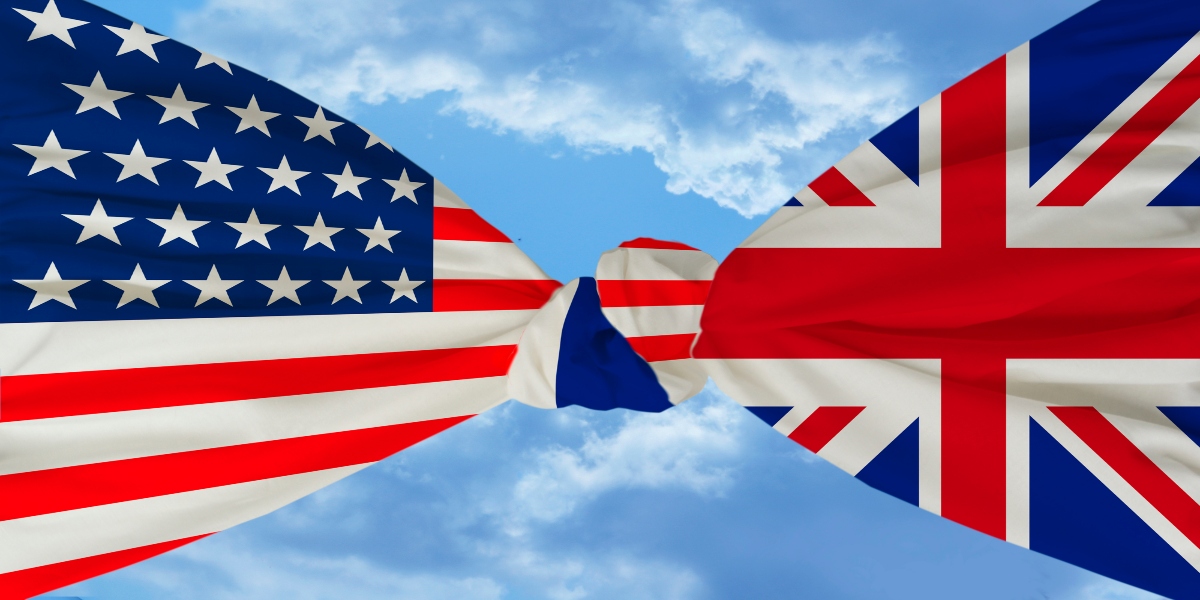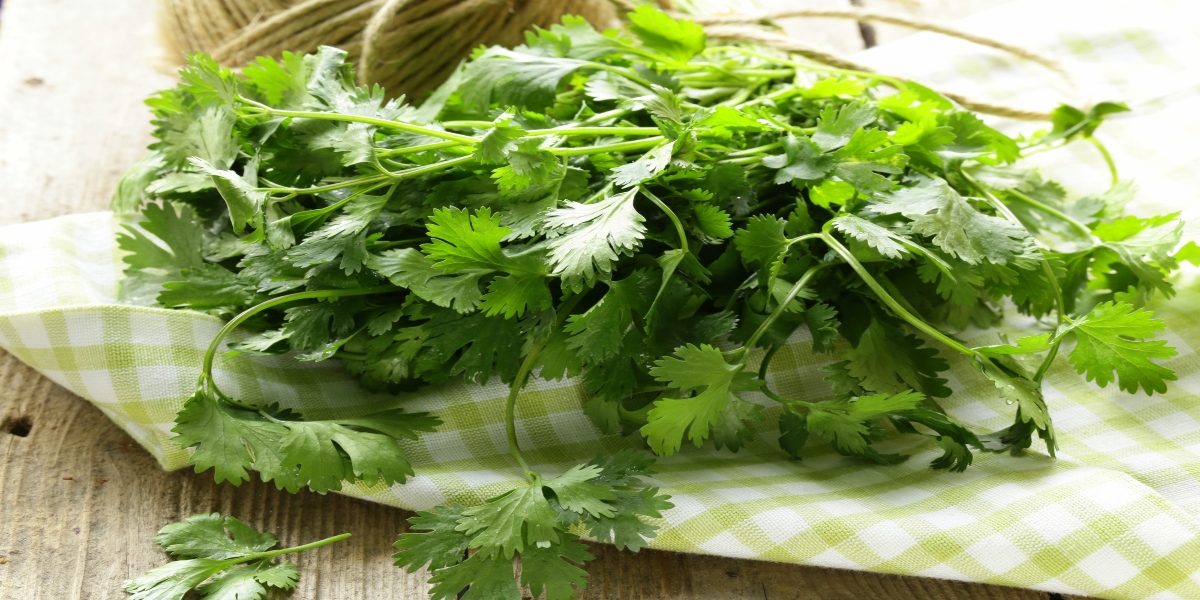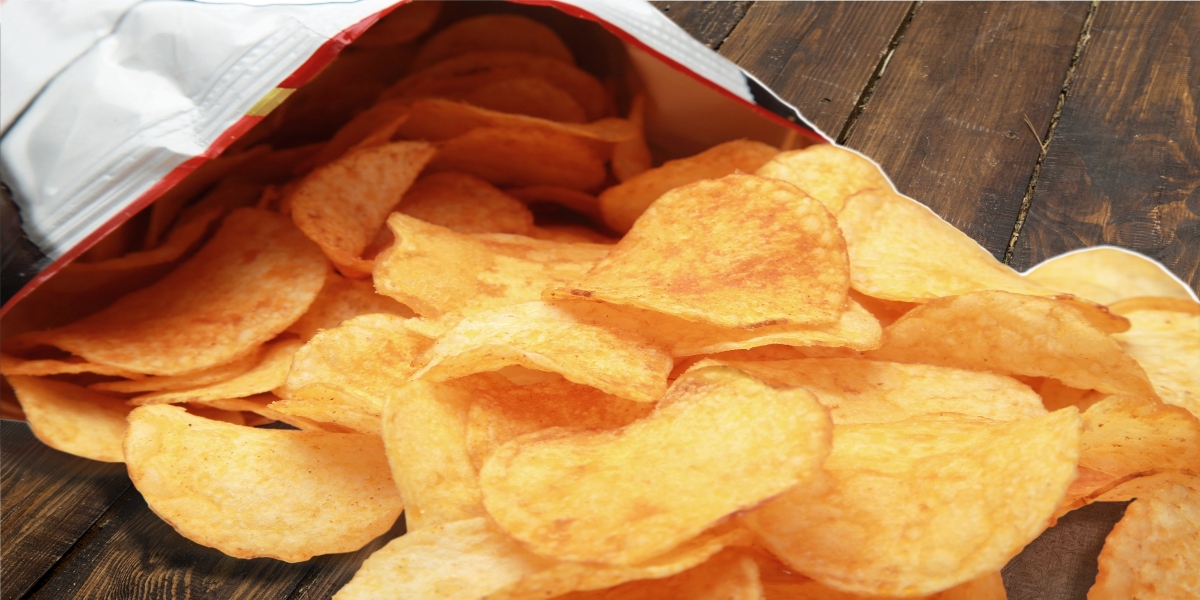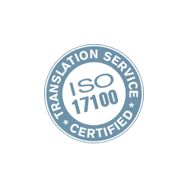British vs American English: Why and How Are They Different
In modern Britain, we often use American English words without realising it.
We find ourselves constantly influenced by American television, news, online media, and more. Little by little, British English and American English are intertwining, and before you know it, your best friend is asking you to “pass the potato chips” or asking you if you like eggplant.
These American English words are not incorrect – they are simply a variation, but they are not of British origin, so when writing for a British audience, you should be careful to avoid using these Americanisms.
In this post, we’re going to discuss how British and American English evolved into separate dialects, and give you some common examples of words and phrases that differ.
How did British and American English evolve?
You may be wondering, if they’re both English, then why are there so many differences?
These different words developed over a long period of time. Our journey starts in 18th Century, when American gained independence from Britain. The UK English dictionary was a work-in-progress by Oxford Scholars, but spelling wasn’t standardised yet.
With the help of lexicographer (someone who compiles dictionaries), America took this as an opportunity to set themselves apart. He decided as a form of protest that American English should have a more logical spelling pattern, with letter changes like -ise to -ize, or honour to honor.
In some ways, however, modern American English is older than modern British English. It’s all down to an R.
When the first English settlers arrived in America, they used rhotic speech where ‘r’ is pronounced in words, whereas in Britain, the soft ‘r’ of received pronunciation was being born. This means that modern American English has kept older characteristics of British English, while British English continues to evolve.

Examples of British vs American English
It’s no secret that there are different words in British vs American English that influence each other to create neologisms through the years.
Let’s take a look at some common examples of British vs American English words and phrases:
Trousers or Pants?
Complimenting an American on their trousers might get you a few confused looks, but we recommend avoiding complimenting a Brit on their pants even more.
The word ‘pants’, be it underwear or trousers, is derived from the word pantaloons, the Anglicised version of the French word pantalon.
Pantaloons were underwear worn by women under their clothes that had a trouser-like appearance, hence the British ‘pants’ for underwear, and the American ‘pants’ for trousers.
In the boot or the trunk?
Whether you open the boot or pop the trunk, we’re all talking about opening the rear storage space of a vehicle.
We are all aware that a trunk can either be found attached to an elephant or used as another word for a large travelling chest, particularly one found on the back of a vehicle before built-in storage was created – but we’re focusing on the latter in this case.
The story is fairly similar for the boot, which could be found as a built-in compartment of a horse and carriage, where one might store their boots. It just so happens that as time has progressed, the Brits stuck with boot and the Americans went with trunk!
Coriander vs Cilantro
Regardless of whether you taste coriander or soap, other languages play a role in why the Brits and Americans differ on this one.
Cilantro is commonly used by Americans as it is derived from the Spanish word for the herb, while Britain decided to follow in the footsteps of the French who use the word ‘Coriandre,’ where we get our Anglicised coriander from.
The reason for this is most likely because Americans were introduced to the herb through Mexican cooking, while Britain learned it from South-East Asian cooking.
If you’re interested in language features and their effects, this is a clearcut example of cultural differences and its impact on vocabulary.

Football and Soccer
Soccer is football in Britain, but football isn’t soccer in America.
Now, once we’ve wrapped our head around that we can get into the details. The term ‘soccer’ comes from the British term ‘association football’. When this sport reached America, the Americans decided they’d shorten it to soccer, and hence the sport of soccer was created.
This doesn’t explain why they have a different sport called football though. As it turns out, when British rugby made their way to America, they made their own version and called it ‘football.’
Trainers or Sneakers
The explanation for the difference between these words is so straightforward it almost sounds untrue!
In Britain when you do any kind of sports, you’ll put on trainers to train in.
In America the term ‘sneakers’ was coined in the 1887 Boston Journal when they described boy’s tennis shoes as having such quiet rubber soles, they could sneak anywhere in them – hence the term sneakers.
Crisps and Chips
You can pour ketchup on chips in Britain and no one will bat an eyelid, but it might be seen as quite a strange thing to do in America.
Here’s another one that would get lost in translation between a Brit and an American. Ask an American for chips and you’ll get crisps, and the reason for the difference is simple: chips were created in America and when they reached Britain we called them crisps, because they’re crispy.

Chips and French Fries
Similar to the crisp and chip battle, there’s the chips and fries battle too.
Chips to a Brit are literally chips off a potato that make delicious sides to a meal. An American would call them french fries.
The term french fries comes from their creation, not in France, but the French-speaking part of Belgium, who are renowned for their excellent fries.
Fizzy Drinks and Sodas
In Britain, you’ll find fizzy drinks and soda water, but in America the term is just soda.
The term fizzy drink is pretty self explanatory – it is a drink that fizzes.
The term soda has a deeper origin. Carbonated drinks didn’t appear until around the 18th Century when scientists created carbonated water. The sodium salts used in the water contributed to the shortened term ‘soda’ that Americans commonly use today.
Pop to the shop or head to the store?
The British English word shop comes from the Middle English word Shoppe used to describe an establishment that offers goods for purchase.
The American English word store means the same thing but comes from the idea of a business that has a store of goods to be bought.
The term shop is also used in American English but more to describe a specialised shop that sells particular products, like a Butcher’s shop that sells meat.

Take a holiday or go on vacation
There’s nothing that a Brit loves more than the Summer holidays, and Americans love to find a new place to visit on vacation.
If the destination is the same, then why do we call them different things?
The word ‘holiday’ meaning holy day comes from an Old English word recorded as early as 950AD as ‘haligdaeg’ essentially meaning a day of rest.
As for vacation, American English adopted this word from the Latin word ‘Vacare’ meaning to be unoccupied, which then developed to be the word vacation in Middle English.
And much like many other languages, American English followed the French in calling their holidays vacations.
Be aware of the differences!
If you’re writing content or producing products for a particular English-speaking audience, whether they are British or American residents, you’ll need to watch out for your spelling and word choice.
Here at Global Languages, we have a team of expert translators who are skilled in translating for a number of industries (like advertising!), making sure everything fits local dialects.
If you’re interested, check out our translation services page for a quote for your project.





